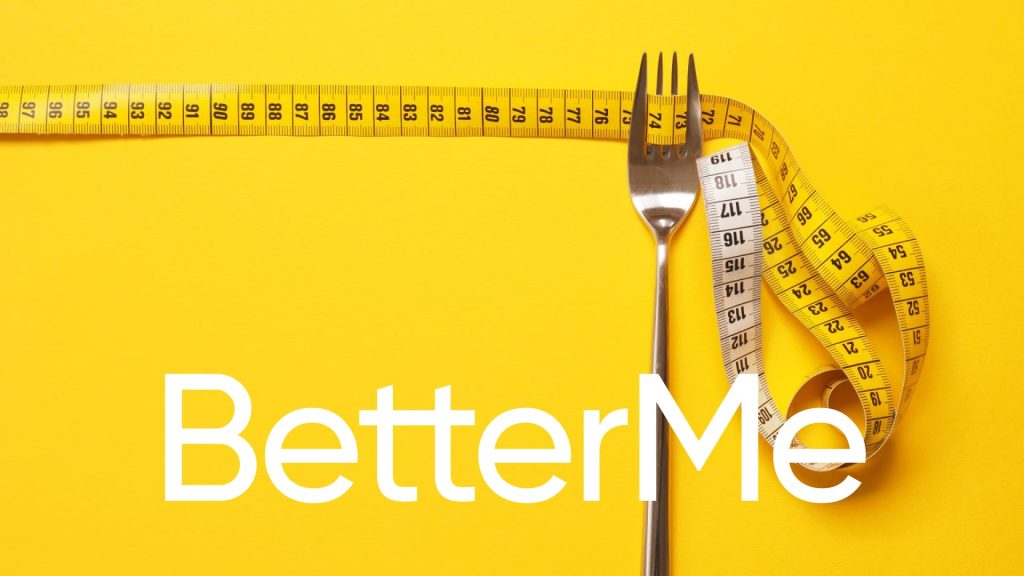A calorie deficit is when you consume fewer calories than your body burns. It’s a great way to lose weight and keep it off for good. Achieving one, though, can be difficult sometimes. If you’re not sure exactly what a calorie deficit is, how to create one, or if it’s even the right path for you, then this article will be incredibly helpful.
What Is A Calorie?
First off, let’s talk about what a calorie is. The energy needed for our bodies daily functions comes from three sources: carbohydrates, proteins, and fats. These nutrients are converted into ATP (adenosine triphosphate), which provides energy for all cell processes in our body (8):
- Carbohydrates provide 4 kcal/g
- Proteins provide 4 kcal/g
- Fat provides 9 kcal/g
Fatty acids contain more Calories (kcal) than the other macronutrients. Although carbs and proteins provide less than half the kcals per gram, they are still important in our diets for maintaining our body tissues.
The body will store all three types of nutrients if you give it more than it needs for maintaining your current weight. However, you can control calorie intake by shifting the proportion of these nutrients. If you want to lose weight, eat fewer calories than your body needs. To gain weight, eat more calories than your body needs.
Read More: 1200-Calorie Deficit: Is It A Safe Way To Lose Weight?
What Is A Calorie Deficit?
When you provide fewer calories than needed for calorie expenditure, you create a calorie deficit. You may have heard that weight loss occurs when the number of calories burned is greater than the number of calories consumed (4). While this is true, it doesn’t explain everything about weight loss.
Your body requires a certain amount of energy every day to function. That’s why the amount of calories you eat in a day varies depending on your weight and activity level. A person who weighs 150 pounds who spends most of their day sitting at a desk, for example, will require fewer daily calories than someone who weighs 300 pounds and is constantly on the move.
The body expends energy through three different types of activities (1):
- Resting Energy Expenditure (REE). The amount of energy it takes to maintain body function when you are at rest. This accounts for 60-75% of the total daily energy expenditure in most healthy adults, and this percentage goes up as you age.
- Thermic Effect of Food (TEF). The amount of energy it takes to digest the food you eat.
- Active Energy Expenditure (AEE). The amount of energy your body expends through physical activity. This accounts for any movement beyond normal daily functions, like exercising or playing sports.
It’s important to realize that these activities make up your total daily calorie expenditure, but they aren’t the only factors that go into how much you should eat each day.
If you tend to let yourself off the hook, raise the white flag when things get tougher than you expected, send yourself on an unconscious binge-eating trip – BetterMe app is here to help you leave all of these sabotaging habits in the past!
How To Calculate Calorie Needs And Deficit?
If you want to lose weight, knowing your calorie needs is important because it’s the first step in creating a calorie deficit that will lead to weight loss.
To calculate your calorie needs, you’ll need to estimate how many calories you expend every day. One way to do this is by multiplying your weight by a factor that corresponds with your level of activity: Weight x Factor = Calorie Needs for Maintenance
- For very light activities like watching TV – use the sedentary factor: weight in pounds x 10 = calorie needs for maintenance
- For exercising 1 to 3 days per week like playing basketball or going to the gym – use the lightly active factor: weight in pounds x 13 = calorie needs for maintenance
- For exercising 4 or more days a week – like practicing sports or working out every day – use the very active factor: weight in pounds x 16 = calorie needs for maintenance
Once you know how many calories your body needs to maintain its current weight, you can then estimate how much you need to reduce your calorie intake to lose weight. A pound of fat contains 3500 calories (6). So if you want to lose one pound per week, you’ll need to create a roughly 500-calorie daily deficit through diet and/or physical activity.
For example, let’s say that you are a 160-pound woman who exercises lightly (factor of 13) three days per week. Your calorie need for maintenance is 2080 calories per day (160×13). If you want to lose about one pound each week, your calorie deficit would be 500 calories per day, so you’d need to eat around 1580 calories each day (2080-500).
This is only one method of roughly estimating energy needs, and it may not be accurate for everyone. A more accurate way would be to use a predictive equation (i.e. Harris-Benedict) plus an activity factor or an online calculator that calculates everything for you – all you have to do is plug in your weight, height, age, sex, and activity level.
Read More: Calorie Deficit Meals: The Ultimate Guide For Eating Less To Lose Weight
Ways To Achieve A Calorie Deficit
There are many ways to create a calorie deficit, from limiting your food intake to increasing your activity level through exercise and other physical activities or both
If you want to reduce the number of calories in 1 or 2 meals of the day, try these strategies:
- Swap out high-calorie ingredients in recipes with lower-calorie alternatives
- Limit fats and oils while cooking and baking
- Enjoy 1 or 2 of your favorite indulgent dishes a week instead of every day
If you want to reduce the number of calories you eat throughout the entire day, try these strategies:
- Cut back on your portion sizes.
- Fill half your plate with fruits and vegetables, a quarter with whole grains, and the final quarter with lean protein. Complement your meal with healthy fats in the right serving sizes.
- Identify three times during the day when you are most likely to eat something that’s not part of your diet plan because you’re feeling bored or stressed. Plan an activity or distraction for those times, like calling a friend to vent, taking your dog on a long walk, or writing down everything you eat during the day in a food journal.
If you want to increase your calorie expenditure through physical activity, try these strategies:
- Get at least 150 minutes of moderate aerobic activity each week, like jogging or biking (9). That’s 30 minutes per day, 5 days of the week.
- Add high intensity interval training to your workouts at least three times per week for an extra calorie burn (7). You can boost your calorie expenditure even more by adding strength training exercises 2 to 3 days a week.
You may not see immediate weight loss if you make changes like these to your diet or lifestyle, but if you stay consistent and keep your calorie deficit at about 500 calories per day, you’ll start to lose weight within a few weeks (6).
Here are some simple tips that will help you start creating your own calorie deficit:
- Make sure that you plan your meals ahead of time! This is way easier than winging it every day because you can have things readily available when hunger strikes. By planning ahead, you can ensure that you have healthy options on hand at any given time so the next time hunger strikes, you won’t have to resort to fast food
- The next thing that will help with making a calorie deficit is being prepared! Keep healthy snacks on hand so that when those cravings hit, you can just grab a pre-made snack instead of going through the drive-thru. As a plus, these kinds of snacks are usually pretty filling and will make sure your body is getting all the nutrients it needs.
- Practice cooking at home instead of eating out. While it may be difficult for some people who aren’t used to cooking every day or at all, there’s plenty of quick and easy recipes available online or in cookbooks that will take no time at all to prepare and only contain ingredients that are healthy for your body.
- Be aware of what and why you’re eating. Take note of how much food is on your plate before you eat it and really think about if you’re actually hungry or just bored, tired, or emotionally eating.
- Don’t forget to keep things interesting! Having the same meals every day will get boring fast, so make sure to switch up what you make often. Have a few go-to meals that you love and rotate them in with other healthy options. This way, you can have a variety of meals without feeling overwhelmed in the kitchen.
BetterMe app is a foolproof way to go from zero to a weight loss hero in a safe and sustainable way! What are you waiting for? Start transforming your body now!
Are There Risks Of Eating Too Few Calories?
Eating too few calories can put you at risk for a variety of health issues. If you eat fewer than 1200 calories per day, it will be difficult to get the vitamins, minerals, and nutrients that your body needs to function normally (3). If you try to eat this little regularly, there’s a good chance that you’ll experience some negative side effects, such as:
Nutrient Deficiency
Your body is constantly shedding small amounts of tissue as part of its normal daily activities. If your calorie intake is so low that it causes frequent overeating or binging episodes – or if you adopt an overly restrictive diet or severely limit one particular food group – your body won’t have enough energy left over to replace the cells being lost. As a result, you may be more susceptible to infections or diseases and have a hard time fighting off existing infections (2).
Slower Metabolism
To maintain your weight, the number of calories you burn each day should stay about the same, even if you start exercising more often. If the number of calories you burn per day goes down, it could signal that your metabolism has slowed down to adjust to your lowered calorie intake. This isn’t good because it means that every time you reduce the amount of food you’re eating, your body will try to conserve energy by burning fewer calories too.
Lethargy
If you’re not getting enough food, your body may have less energy to go about all of its daily functions. This could make you feel tired and worn out throughout the day, which will make it tougher for you to stick with a challenging workout routine or a healthy diet (2).
Risk Of Gallstones
If you lose weight too quickly, by eating too few calories, there’s a chance that you’ll develop gallstones. Usually, gallstones form when the concentration of bile in the gallbladder increases because one of the substances that make up bile, cholesterol, is present at very high levels compared to other components of bile. This usually happens as a result of rapid weight loss from extreme calorie restriction or excessive amounts of exercise (5).
Do Calorie Deficits Work?
Calorie deficits do work, but they’re not always easy to maintain long-term. It sounds simple in theory: consume fewer calories than you burn, and you’ll lose weight. But the reality is much more complicated than that. For one thing, most people’s bodies respond to periods of calorie restriction with a protective mechanism that makes it hard for them to keep the weight off.
People who are very active or athletes will likely require more calories than someone whose job is mostly sedentary. People with larger bodies require more calories than people with smaller bodies, even if they are trying to lose weight. If you consume too few calories, there could be harmful effects on your health and wellness!
The Bottom Line
If you want to reduce your calorie intake to lose weight, the most important thing is to make sure you don’t go too low. Eating fewer than 1200 calories per day can lead to symptoms like fatigue and lethargy, which could prevent you from working out as much as is necessary for successful weight loss. Eating less than this amount regularly may also cause your metabolism to slow down – making it even harder for you to lose weight and keep it off!
DISCLAIMER:
This article is intended for general informational purposes only and does not address individual circumstances. It is not a substitute for professional advice or help and should not be relied on to make decisions of any kind. Any action you take upon the information presented in this article is strictly at your own risk and responsibility!
SOURCES:
- A review: exercise and its influence on resting energy metabolism in man (1989, pubmed.gov)
- Caloric Restrictions in Humans: Impact on Physiological, Psychological and Behavioral Outcomes (2011, nih.gov)
- Dietary Treatment of Obesity (2015, nih.gov)
- Fat loss depends on energy deficit only, independently of the method for weight loss (2007, nih.gov)
- Gallstone formation and weight loss (1993, nih.gov)
- Healthy weight loss (2014, jamanetwork.com)
- High-Intensity Intermittent Exercise and Fat Loss (2011, nih.gov)
- How many calories are in one gram of fat, carbohydrate, or protein? (n.d., usda.gov)
- How much should the average adult exercise every day? (2021, mayoclinic.org)














